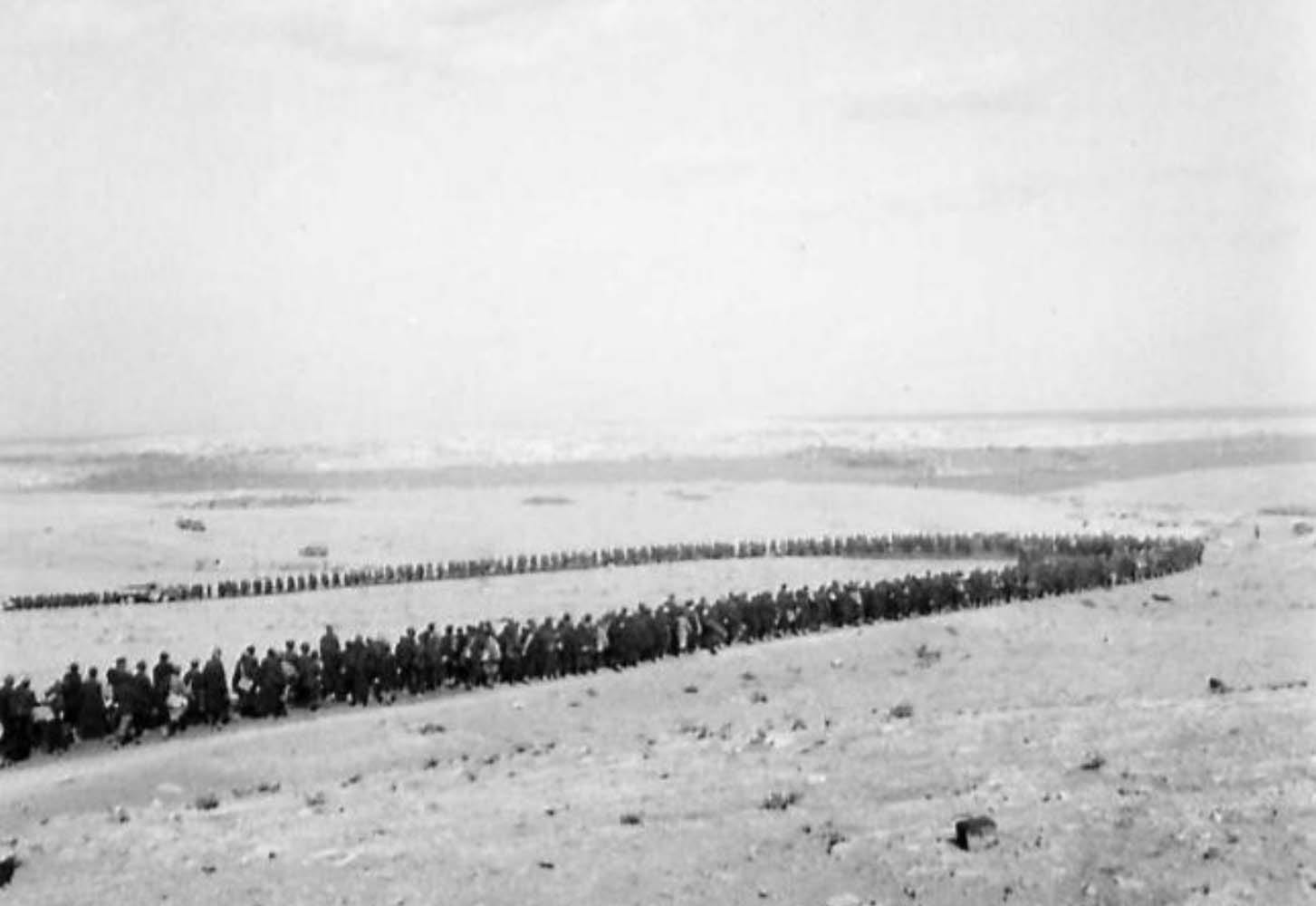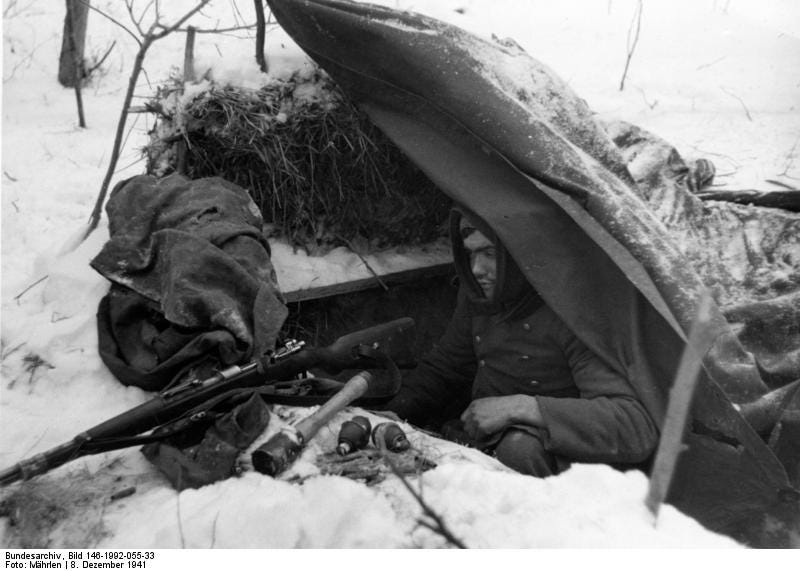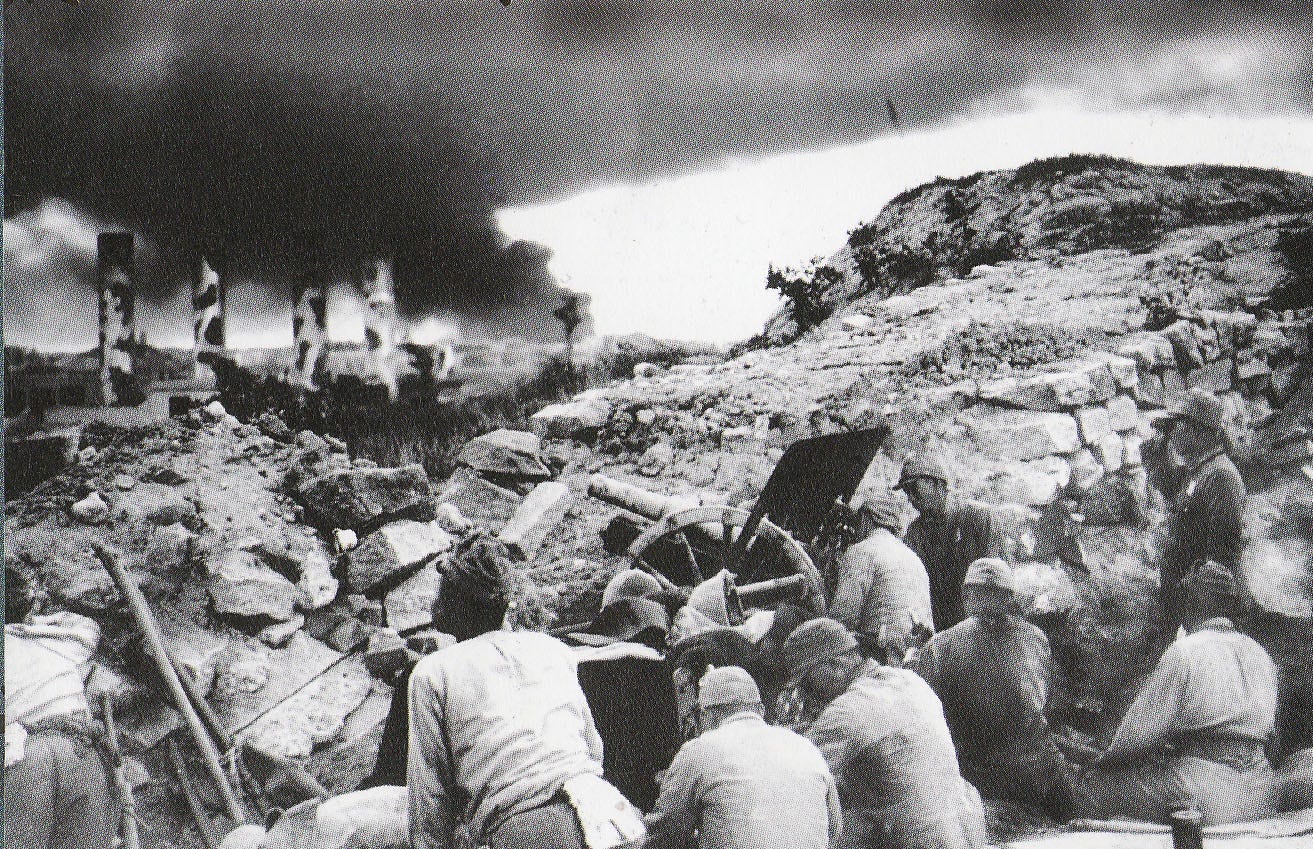Christmas Day in a war torn world
25th December 1941: From Washington to Hong Kong via North Africa, France and Russia
Across America and Britain and in many places in the the wider ‘English speaking world’ many people heard a radio broadcast by President Roosevelt and Winston Churchill, recorded on the 24th1.
Churchill knew that he had to prepare everyone for a long hard fight and, if there was some respite over Christmas, it would be a brief one:
This is a strange Christmas Eve. Almost the whole world is locked in deadly struggle, and, with the most terrible weapons which science can devise, the nations advance upon each other.
…
Here, in the midst of war, raging and roaring over all the lands and seas, creeping nearer to our hearts and homes, here, amid all the tumult, we have tonight the peace of the spirit in each cottage home and in every generous heart. Therefore we may cast aside for this night at least the cares and dangers which beset us, and make for the children an evening of happiness in a world of storm. Here, then, for one night only, each home throughout the English-speaking world should be a brightly-lighted island of happiness and peace.
…
And so, in God's mercy, a happy Christmas to you all.



Wherever they were troops tried to make the best of the day. Gilbert Wilson2 was with the 10th Royal Hussars in the Desert:
‘Christmas Day 1941’. The day of days — we celebrated it with bacon, sausages and biscuits for breakfast. Toasted the King and loved ones with Rita Lime Juice, for dinner we had sausages, green peas, potatoes and peaches and cream, Homebush shortbreads and tea. The RSM invited SSM Dunk for dinner and again for tea, and we made a very happy quartet. The evening was made merry by a singsong with the Officers; I also listened on my tank wireless set to the ‘Old Mother Riley’ programme and the news.

For a lot of people it was not going to be a good day.

In France Agnes Humbert3 was shivering in a wing of a men's prison where the cold was 'arctic and relentless'. She had been in prison since April awaiting trial for anti Nazi activities - distributing French nationalist pamphlets:
Prison de Fresnes, 25 December 1941
The cold is simply excruciating.
My Warder, an Austrian veteran of the 1914-18 war and a former political prisoner himself, tries to show his sympathy for me. This morning he told me that it was Christmas Day, and that although like him I probably had children, I should try not to be too sad. As he spoke he proffered me two detective stories, which he said I must promise to read in order to take my mind off things.
At midday, the soldiers on guard duty launch into a Christmas carol. The adjutant barks at them to shut up. He’s the perfect little Nazi, piously Heil Hitler-ing at the slightest opportunity. Clearly in his view it is positively obscene for his men to sing in celebration of the birth of a dirty jew.
It was even colder for Hans Roth4, fighting with the Wehrmacht on the Eastern Front:
25 December:
We are huddled outside in the firing hole with our machine guns. We handle our weapons carefully and cautiously; we cannot repeat what happened on December 22. [When they were almost over-run by a Russian attack] Not a drop of oil can touch the steel, for it will freeze immediately.
We look over to where the enemy is lying, he who would love to form an alliance with winter and who tries again and again to break through our positions. We have learned quite a few things from him already: we wear our shirts over our coats now, and as we have no white paint, each morning we quickly piss on the steel door, then spread snow over it, and there is your camouflage.
Soviet fighters approach, howling, in low altitude flights. The whole mess is now starting up again. We grab our ammunition clips. The enemy’s artillery is revving up; we are lucky to have such deep snow, for on the rock-hard frozen ground, the effects of the detonations are so much stronger. We hear the tanks rattling closer, and we know that there will be no rest for many hours.
It was now a truly global war and on the other side of the world British forces were facing the Japanese onslaught onto their colonial outposts. It was near the end in Hong Kong. After sixteen days of fighting, British and Canadian troops had taken heavy casualties with many killed and wounded.
Stephen Babin5 was a Ambulance driver in Hing Kong, he had just returned under machine gun fire, to the hospital:
We were in St. Stephen´s Hospital as the Japanese advanced. They closed on the hospital and Japanese soldiers beat on the door with their rifle butts demanding to get in. Colonel Black went to the door and began to protest. The Japanese shot him dead.It was December 25th, about 7:30 in the morning, somewhere around there, when we were taken prisoner. Those of us able to walk were hazed along into two rooms upstairs. The room had just a divider. You could go into one room from the other although the doors could be closed to the balcony. After they put us in there they went downstairs and bayoneted the wounded right in their beds.
After his aircraft had been destroyed in the early days of the campaign, Squadron Leader Donald Hill6 found himself fighting with Canadian troops, the Winnipeg Grenadiers, as an infantryman:
What an Xmas day - empty stomachs, tired out, and heaven knows what is going on. At 10 am a message arrives saying there is a truce until midday. This news is immediately followed by a terrific bombardment of our position. Not my idea of a truce.
More Canadians melt away leaving our line practically undefended. I gather the few remaining men together and proceed to climb Mt Gough hoping to join up with our main forces. When we reach the top and strike the main road we run into several hundred Canadians retreating from Wan Chai Gap. Wan Chai Gap is the most vital sector of all and this means the end.
We are told that the island surrendered at 3.30 over an hour ago. The troops have no arms and are completely worn out.
A scene I will never forget with ammunition dumps going up everywhere and the Japs pouring hundreds of shells just over our heads into blocks of houses across the road. Finally the barrage stops and white flags appear from all the houses.


The order was issues at 15.15 but did not reach many units until the evening.
It wasn't over for everyone in Hong Kong, Vince Calder7 was with the Royal Rifles of Canada:
At 5:00 P.M. on the 25th, our boys got together for one last crack at the little brown devils. The morale was very high, being backed up by hatred, contempt and disgust for those wanton, raping, sadistic, cold blooded murderers from Japan. A Hong Kong volunteer defence corps captain, a vet. of WW1, later told me it was the finest bayonet charge he had ever witnessed.
The audio version can be heard at America’s National Churchill Museum
Read more of his story on BBC People's War.
Agnes Humbert and her fellow prisoners did their best to keep their spirits up under a regime where people were imprisoned for the most trivial acts of resistance.
See Agnes Humbert: Resistance - Memoirs of Occupied France.
Hans Roth had had had more than one narrow escape during the invasion of Russia. The whole of his account of the fighting on Christmas day can be read in Eastern Inferno: The Journals of a German Panzerjager on the Eastern Front, 1941-43.
There are several parts to Alfred Babies graphic account of the horrors in the hospital at Hong Kong Veterans Association.
Donald Hill's diary was written in code to prevent it being read by the Japanese. The full story of how it was not decoded until 1996 by P.J Ashton, a mathematician at the University of Surrey, together with further extracts, can be read at Plus Maths.
His full account can be found at the Hong Kong Veterans Commemorative Association.





